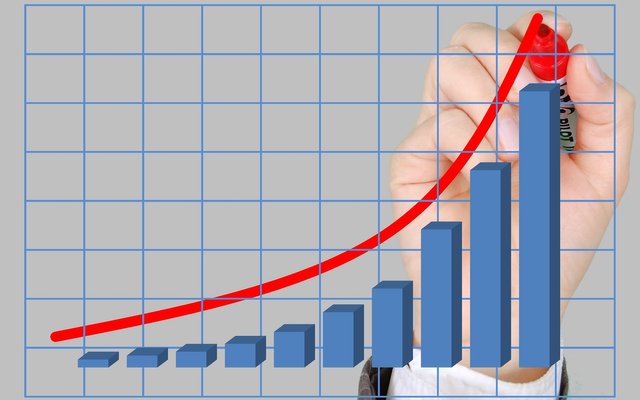The Impact of Inflation in Nigeria
Inflation as we know it, is the sustained increase in the general price of goods and services in an economy over a period of time. This has been a persistent challenge for Nigeria, and even much worse thus far in the year 2024, with significant implications for the country's economic stability and social well-being. According to the National Bureau of Statistics (NBS), "Nigeria’s annual inflation rate rose to 29.90 per cent in January 2024, from 28.92 per cent in December 2023. So far this year, Nigeria continues to grapple with inflationary pressures, affecting various aspects of the economy and the lives of its citizens.

pics at
Economic Effects
Inflation drastically reduces the purchasing power of consumers, leading to a decrease in significant income. In Nigeria, the impact of inflation on consumers is enormous, particularly for low-income households who spend a larger portion of their income on essential goods such as food and fuel. As prices rise, households have to cut back on consumption or opt for cheaper alternatives, which negatively affects their standard of living.
The price of fuel is a major factor which affects all other aspects of the Nigerian economy, being that the country depends so much on fuels like Premium Motor Spirit (petrol) and Diesel. The former being majorly for daily commute, while the latter is for heavy duty transport - food, raw materials, machineries, etc. Diesel is also measure of last resort for power generation for industrial use, with the country generating and distributing only a minute percentage of its total power demands.
Inflationary pressures can undermine investment and savings behavior, as investors may become hesitant to commit capital due to uncertainties about future purchasing power, while savers may see the real value of their savings diminish over time. This can hamper long-term economic growth and development in Nigeria, as investment and savings are critical drivers of capital formation and productivity enhancement.
Social Impact
Inflation can worsen income inequality and poverty levels, unequally affecting vulnerable segments of the population. In Nigeria, where income inequality is already pronounced, inflationary pressures keep widening the gap between the rich and the poor. Low-income earners, who are less able to absorb the impact of rising prices, are particularly vulnerable to falling deeper into poverty as their purchasing power diminishes.
Furthermore, inflation has adverse effects on access to essential services such as healthcare and education. The cost of healthcare services and education becomes prohibitive for many Nigerians as prices increase, limiting their access to these basic necessities. This can further worsen social disparities and hinder efforts to achieve inclusive development and social cohesion.
Macroeconomic Effects
Inflationary pressures pose significant macroeconomic challenges for Nigeria, affecting key indicators such as the exchange rate, interest rates, and fiscal policy. High inflation rates undermine the stability of the Nigerian naira, leading to currency depreciation and reducing the country's purchasing power in the global economy. This, in turn has huge effects on import inflation, as the cost of imported goods and services rises in domestic currency terms.
Furthermore, inflationary pressures can complicate monetary policy implementation by central banks. In an effort to curb inflation, central banks may be compelled to tighten monetary policy by raising interest rates. However, this can have adverse effects on economic growth and employment, as higher borrowing costs deter investment and consumption. Striking a balance between inflation control and sustainable economic growth becomes a delicate task for policymakers in Nigeria.

pixabay
Policy Responses
Addressing inflation in Nigeria requires a comprehensive policy approach encompassing both monetary and fiscal measures. On the monetary front, the Central Bank of Nigeria (CBN) plays a pivotal role in managing inflation through its monetary policy tools, such as interest rate adjustments and open market operations. Tightening monetary policy can help rein in inflationary pressures by reducing aggregate demand and curbing excessive money supply growth.
Additionally, fiscal policy measures can complement monetary policy efforts in combating inflation. Government expenditure management, revenue mobilization, and structural reforms aimed at enhancing productivity and supply-side capacity are crucial in addressing the root causes of inflation in Nigeria. Improving infrastructure, reducing bureaucratic red tape, and promoting investment in key sectors such as agriculture and manufacturing can help alleviate supply constraints and mitigate inflationary pressures over the long term.
Inflation remains a formidable challenge for Nigeria, especially since the announcement of fuel subsidy removal in May 2023, and and the decision by the government to float the naira, allowing market forces to determine its value, against the previous approach of the CBN determining the value. These have resulted in far-reaching implications for its economy and society.
The adverse effects of inflation on consumers, businesses, and the overall macroeconomic environment underscore the importance of effective policy responses to mitigate its impact. Addressing inflation requires a multi-faceted approach that combines monetary and fiscal measures with structural reforms aimed at enhancing productivity and promoting sustainable economic growth. By tackling inflationary pressures head-on, Nigeria can lay the foundation for a more stable and prosperous future for its citizens.
Thank you very much for reading this post, I appreciate your contributions. Remember also to always check back.
I am...
